From May 22 to 24, the “Air Pollution and Climate Change” conference jointly organized by the Institute for Carbon Neutrality of Tsinghua University(ICON, Tsinghua), the School of Environment of Tsinghua University, and several journals of Nature was held in Beijing. More than 300 experts and scholars from domestic and foreign universities and research institutions such as China, the United States, Germany, Switzerland, and Sweden participated in the conference.
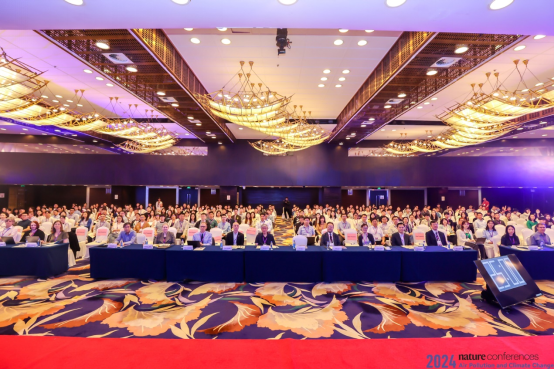
In his speech, Yang Bin, Vice President of Tsinghua University, stated that air pollution and climate change are among the major environmental challenges facing the world today. These issues not only concern human health and well-being but also relate to the balance and sustainable development of the Earth. Addressing air pollution and responding to climate change have become urgent tasks in global environmental governance. He hopes that everyone will take this opportunity to communicate fully, inspire innovation, and contribute their wisdom.
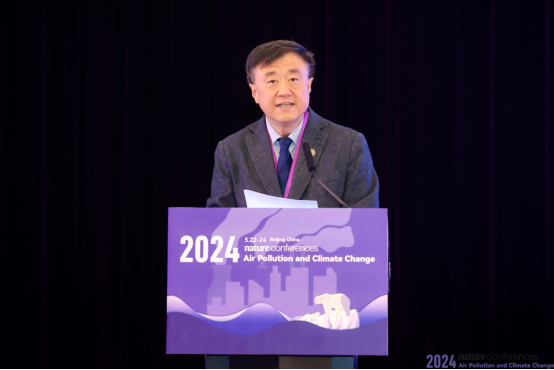
He Kebin, an academician of the Chinese Academy of Engineering and the dean of the ICON, Tsinghua, also emphasized in his speech that in recent years, China’s battle for blue skies has been advancing deeply. Under the “dual carbon” goals, environmental governance faces even more severe challenges. Globally, due to the dual pressures of clean air and carbon neutrality, human socio-economic development is undergoing a significant transformation from resource dependency to technology dependency.
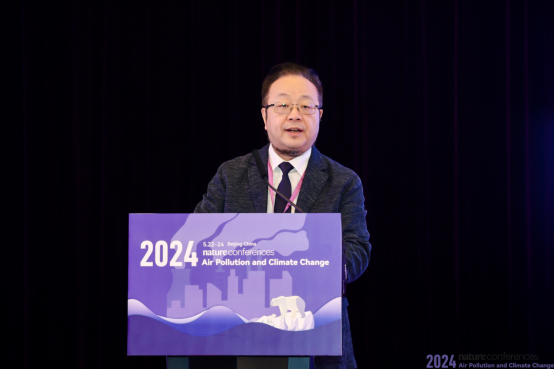
Yang Xiaohong, Vice President of Government and Academic Affairs for Greater China at Springer Nature, remarked in her speech that air pollution and climate change are major challenges humanity faces in the 21st century. These related issues urgently require more high-quality cross-border and interdisciplinary exchanges to develop more effective response strategies and solutions through shared knowledge and integrated resources. In light of this, the School of Environment at Tsinghua University, the ICON at Tsinghua University, and the Nature series of journals jointly hosted this conference, providing a platform for academic exchange and intellectual collision among natural scientists, social scientists, interdisciplinary scholars, and policymakers. This initiative aims to contribute wisdom and strength to address air pollution and climate change, and to jointly promote green low-carbon transformation and high-quality development.
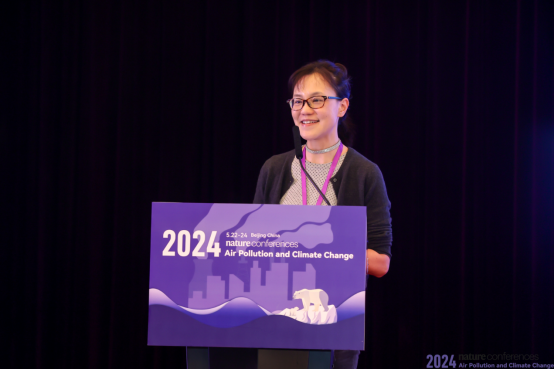
The three-day academic conference included six topics: the interaction between air pollution and climate change, the co-benefits of addressing air pollution and climate change, the transformation of clean energy systems, the synergy between air pollution mitigation and climate change, the dialogue between science and policy, and dialogue with Nature editors. Keynote speeches, invited speeches, oral presentations, thematic discussions, poster presentations, and other sessions were held to showcase the latest research trends, share the latest research results, and put forward prospects for future research.
In the first session titled “Interactions between Air Pollution and Climate Change,” Drew Shindell, a member of the National Academy of Sciences and distinguished professor at Duke University, delivered a keynote speech on “Incorporating the Benefits of Mitigating Climate Change and Improving Air Quality into Policy.” Colette Heald, a professor at ETH Zurich, Örjan Gustafsson, a member of the Royal Swedish Academy of Sciences and professor at Stockholm University, and Huang Xin, a professor at Nanjing University, each presented invited talks on the topic.
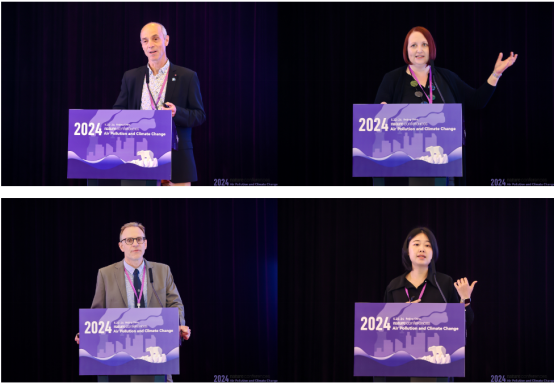
In the second session, “Synergies in Addressing Air Pollution and Climate Change,” Michelle Bell, a member of the National Academy of Medicine and professor of Environmental Health at Yale University, gave a keynote speech on “Synergies in Addressing Air Pollution and Climate Change.” Lena Höglund-Isaksson, a researcher at the International Institute for Applied Systems Analysis (IIASA) in Austria, John Jamir Benzon R. Aruta, an associate professor of Environmental Psychology at De La Salle University in the Philippines, and Kan Haidong, a professor at Fudan University, also delivered invited talks on the theme.
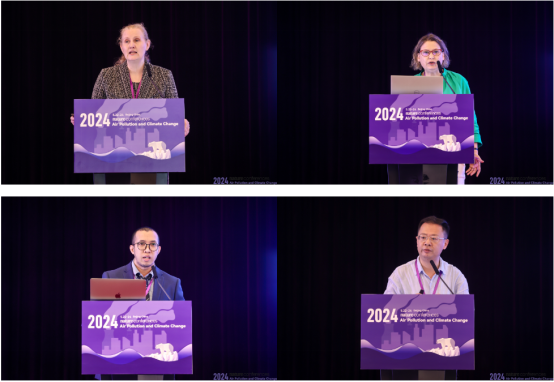
In the third session, “Transitioning to Clean Energy Systems,” Tao Shu, an academician of the Chinese Academy of Sciences and a Boya Chair Professor at Peking University as well as a chair professor at Southern University of Science and Technology, presented a keynote speech on “Health Benefits of Energy Transition in the Civil Sector.” Jessica Jewell, a professor at the University of Bergen in Norway, Denise Mauzerall, a professor at Princeton University in the U.S., and Narasimha Rao, an associate professor at Yale University, each provided invited talks on the subject.
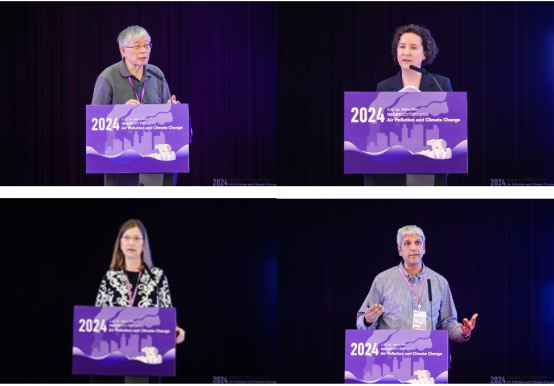
In the fourth session, “Coordinated Mitigation of Air Pollution and Climate Change,” Johannes Lelieveld, an academician of the German National Academy of Sciences, director of the Max Planck Institute for Chemistry, and professor at the University of Mainz, delivered an online keynote speech on “Health Impacts of Air Pollution from Fossil Fuels.” Meelan Thondoo, a researcher at the University of Cambridge in the U.K., Zbigniew Klimont, a researcher at IIASA, Kimberly Doell, a PhD candidate at the University of Vienna, and Zhang Qiang, a professor in the Department of Earth System Science at Tsinghua University, also presented invited talks on the topic.

In the fifth session, “Dialogue between Science and Policy,” He Kebin, an academician of the Chinese Academy of Engineering and director of the Carbon Neutrality Research Institute at Tsinghua University, gave a guiding speech in the dialogue session. Lei Yu, director of the Atmospheric Institute at the Ministry of Ecology and Environment’s Environmental Planning Institute, moderated the thematic discussion.
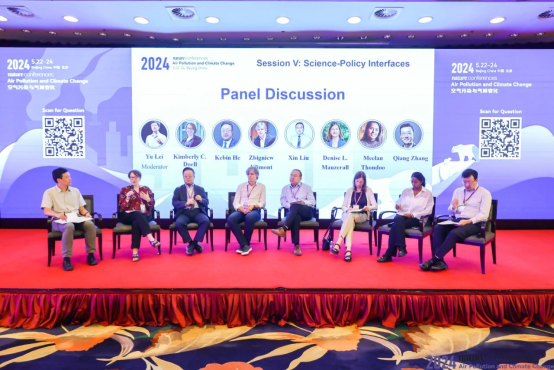
In the sixth session, “Face-to-Face with Editors of Nature Series Journals,” William Burnside, editor-in-chief of Nature Sustainability, presented a report on “How to Publish Articles in Nature Series Journals.” He invited senior editors Jiang Xujia from Nature Geoscience, Yan Lingxiao from Nature Climate Change, Xia Yang from Nature, and Clare Davis from Nature Reviews: Earth & Environment to participate in the Q&A session. Additionally, over twenty domestic and international experts and scholars delivered oral reports on related topics.
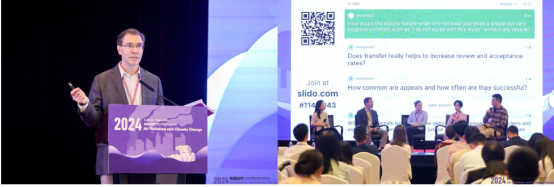
During the poster presentation session, more than 80 experts and scholars participated in sharing their insights, engaging in lively discussions on new developments, applications, and challenges in the fields of air pollution and climate change.
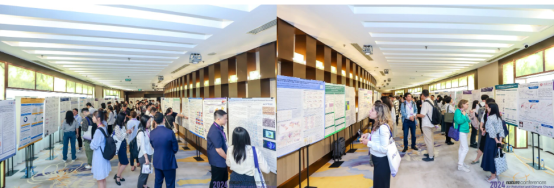
At the closing ceremony, He Kebin summarized the conference, stating that air pollution and climate change are significant challenges facing the world today, and global cooperation is crucial for addressing these issues. Although the three-day conference was brief, it successfully enhanced communication and built consensus through various formats, promoting cutting-edge and interdisciplinary research on air pollution and climate change, aiding in air quality improvement, and accelerating actions to combat climate change.
 Latest recommendations
Latest recommendations


